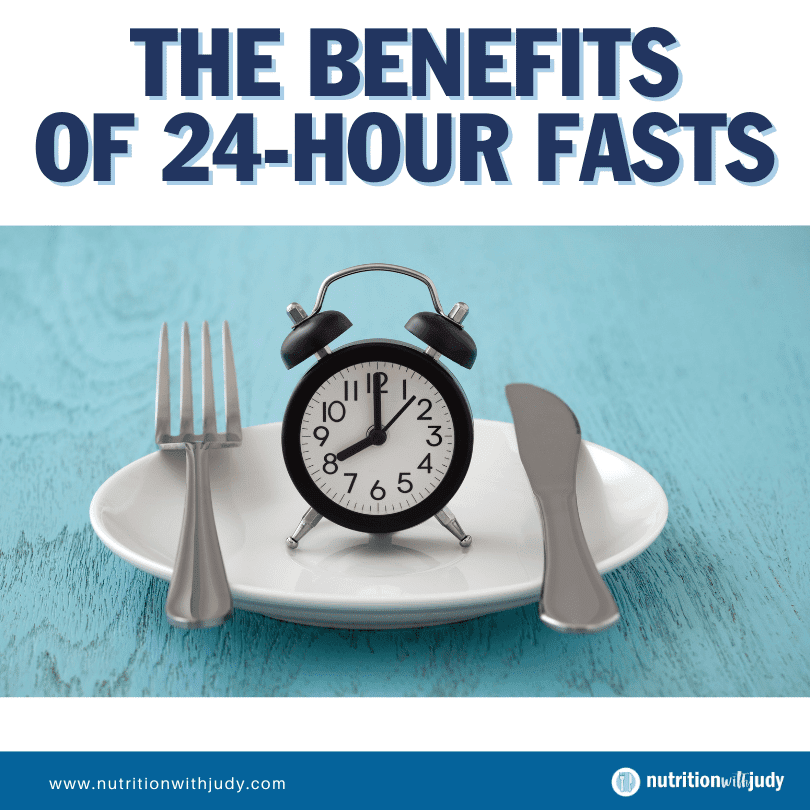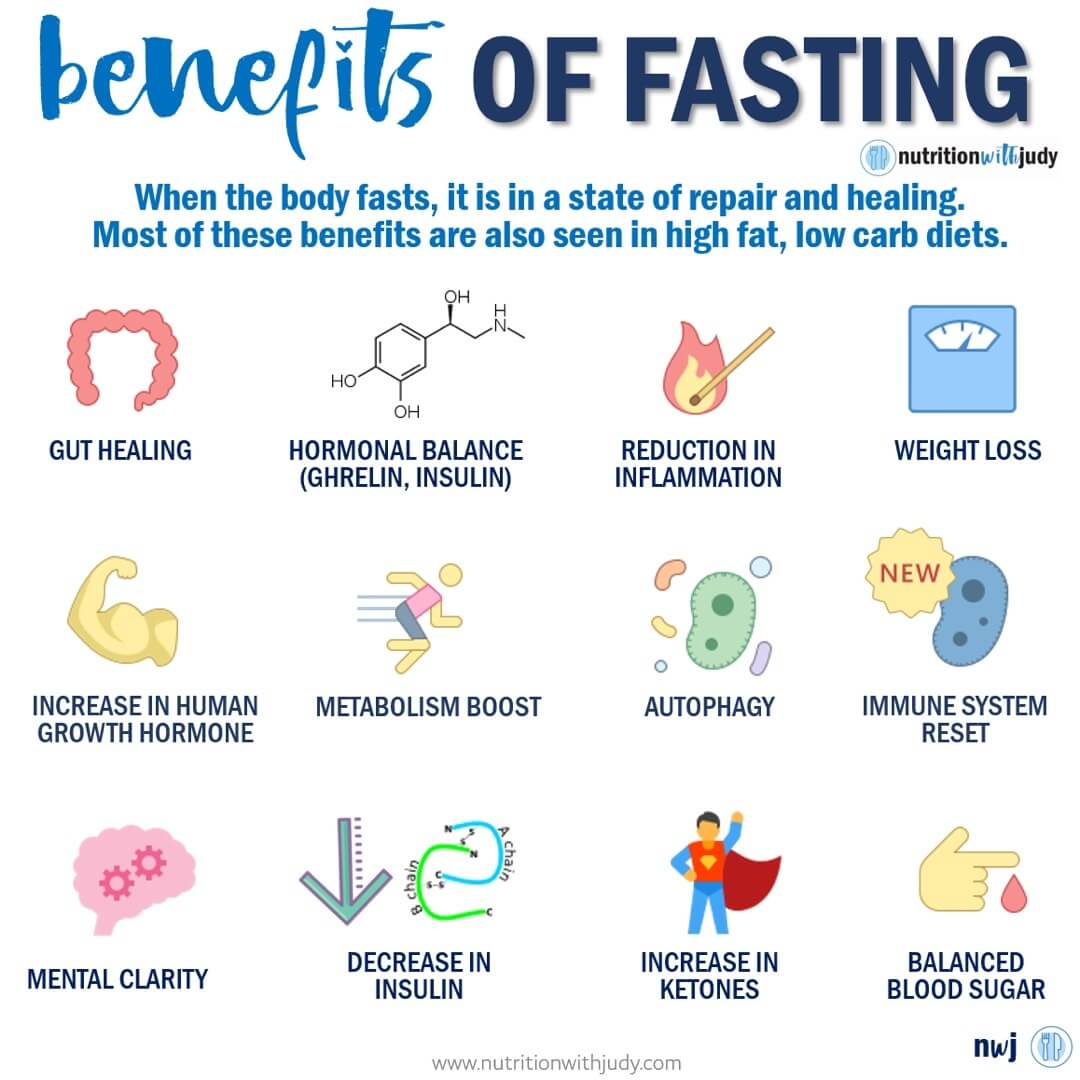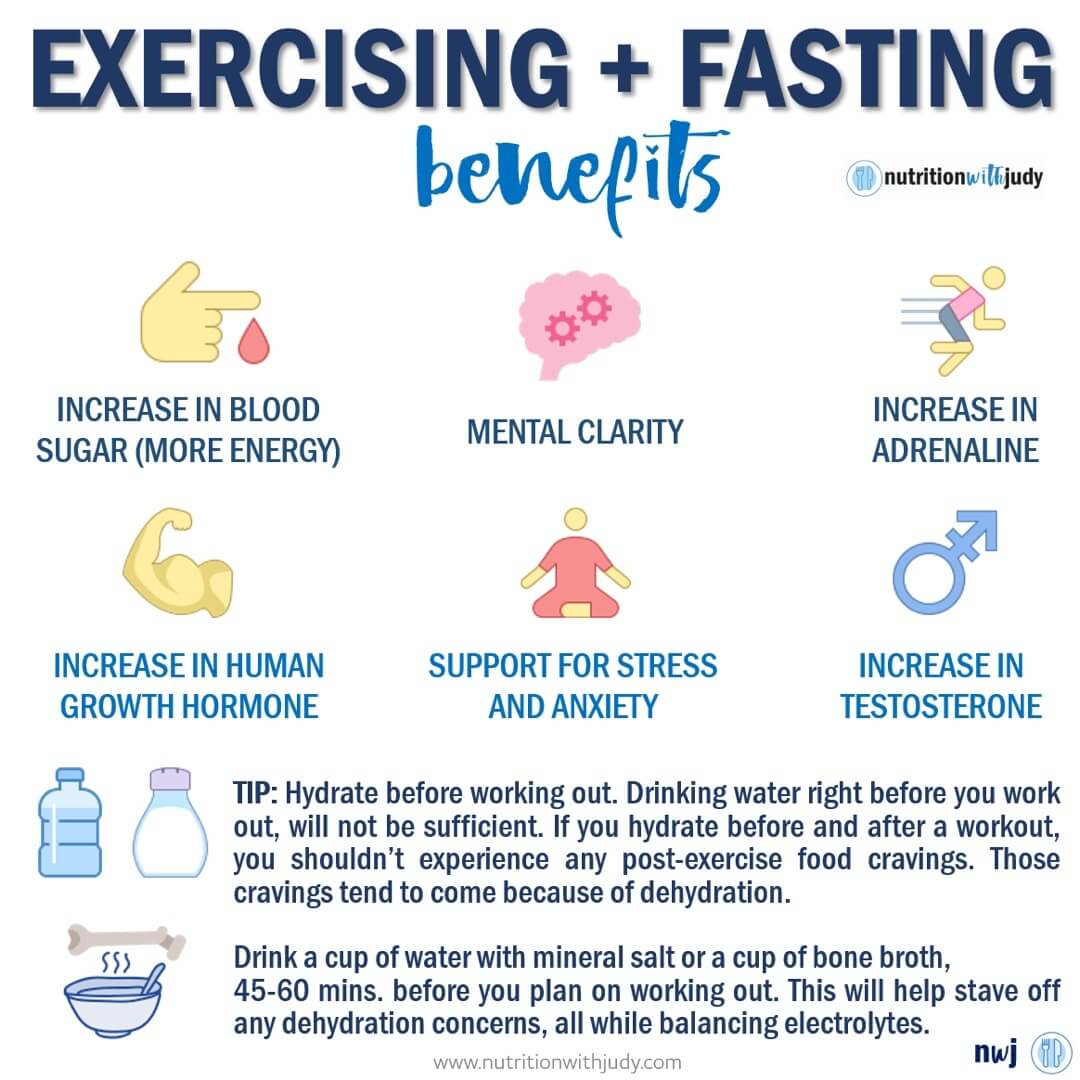

The Benefits of 24-Hour Fasts


In today’s fast-paced world, where convenience often trumps quality, it’s vital to revisit traditional health practices that offer substantial benefits. One such practice, gaining renewed attention for its remarkable health benefits, especially when combined with the carnivore diet, is the 24-hour fast. This approach isn’t just a fleeting trend; it’s a powerful tool that supports weight loss and numerous other health benefits.
Our focus on a meat-centric diet, which emphasizes nutrient-dense, whole foods, pairs exceptionally well with periodic fasting. The synergy of these practices helps in detoxifying the body, improving metabolic efficiency, and enhancing overall wellness. Whether you’re new to the carnivore lifestyle or a seasoned adherent, integrating 24-hour fasts may elevate your health journey, offering a holistic path to improved well-being.
Let’s take a closer look at the benefits of 24-hour fasts and if you should start incorporating this tool in your health journey.
What Is a 24-Hour Fast?
A 24-hour fast is a form of intermittent fasting where individuals abstain from eating for a full day. This method has garnered significant interest due to its simplicity and the array of health benefits it offers. People are attracted to 24-hour fasts because they can aid in weight loss, improve metabolic health, and potentially enhance mental clarity and longevity. This fasting style appeals to those seeking a straightforward, yet effective approach to health improvement, without the need for complex diet plans. It’s particularly popular among those who aim to detoxify their bodies, reset their eating habits, and cultivate a mindful relationship with food.
What Are the Benefits of a 24-Hour Fast?


1. Boosts Human Growth Hormone (HGH) Production: Fasting increases the production of HGH, which is crucial for building muscle and bone mass. This hormone is vital for overall health and vitality. A recent study found that HGH levels increased five-fold during a 24-hour fast.
2. Promotes Autophagy: Autophagy is the body’s way of cleaning out damaged cells, in order to regenerate newer, healthier cells. On a carnivore diet, which mimics fasting, the benefits of autophagy can be realized in a shorter fasting period. This process is crucial for cellular health and longevity. Even without being on a carnivore diet, short-term fasting has been reported to induce profound autophagy.
3. Stress Management: While fasting does temporarily increase cortisol levels, the overall benefits of fasting can outweigh the cortisol spikes. It’s essential to manage stress through meditation, deep breathing exercises, and adequate sleep. Preliminary research suggests that fasting may have a positive effect on anxiety and depression. Fasting, in conjunction with these practices, can lead to better stress management.
4. Enhanced Exercise Benefits: Fasting and exercise together can produce temporary oxidative stress, which benefits the muscles. This combination also helps in managing stress and anxiety, boosts growth hormone production, and improves overall body composition. Additionally, exercising while fasting may raise testosterone levels, further enhancing physical fitness.
5. Regulates Hunger Hormones: Fasting influences the secretion of ghrelin (the hunger hormone) and leptin (the satiety hormone). Leptin, secreted from fat cells, sends signals to the brain to stop eating. High-fat diets, such as the carnivore diet, are likely to support longer periods of satiety, making fasting more manageable. This regulation of hunger hormones can be especially beneficial for weight management.
In summary, a 24-hour fast, particularly in conjunction with a carnivore diet, offers a holistic approach to health by enhancing hormonal balance, promoting cellular health, aiding in weight management, and improving overall physical and mental well-being.
Who Should Try a 24-Hour Fast?


24-hour fasts are suitable for any individual seeking to enhance their health through practices such as autophagy, the body’s process of cleaning up old, broken-down cells. However, certain groups should approach fasting with caution or avoid it altogether:
- People with Disordered Eating: Those struggling with restrictive eating habits or eating disorders should be cautious. Fasting should not be used to compensate for binge eating. Anorexia nervosa, a severe eating disorder, is a leading cause of death among mental health conditions. Therefore, it’s crucial to ensure a healthy relationship with food before attempting any form of fasting.
- Individuals with High Stress or Cortisol Issues: Fasting, similar to exercise, is a form of stress on the body. It’s not recommended for lowering cortisol levels. Instead, methods such as meditation, deep breathing, and sufficient sleep are advised for managing stress. People with cortisol imbalances should address these issues before considering fasting. In some cases, fasting can exacerbate adrenal stress, particularly in those with adrenal imbalances, and should be avoided until adrenal function improves.
- Timing and Adaptation: It’s essential to wait until the body has fully adapted to a fat-based diet before incorporating fasting. This adaptation ensures that the body can efficiently use fat for energy, making the fasting experience more manageable and beneficial.
- People with Certain Chronic Conditions: Certain health conditions such as Chronic Inflammatory Response Syndrome (CIRS) can cause a wide array of symptoms for individuals trying to fast. It’s important not to engage in fasting temporarily as you undergo treatment for these root-cause chronic conditions.
24-hour fasts can be a powerful tool for health improvement when approached with mindfulness and an understanding of one’s individual health circumstances. It’s always advisable to consult with your trusted healthcare provider before starting any fasting regimen, especially for those with existing health concerns or those new to fasting. You can read more about some of the pros and cons of fasting here.
What’s the Difference Between 24-Hour Fasts and Intermittent Fasting?
24-hour fasts and intermittent fasting are both popular dietary strategies, each with its own distinct approach and benefits:
- Duration: The primary difference lies in their duration. Intermittent fasting involves cycles of eating and fasting that typically last less than 24 hours. Common patterns include 16:8 (16 hours of fasting followed by an 8-hour eating window) or 12:12. In contrast, a 24-hour fast extends over a full day, involving complete abstinence from food for that period.
- Frequency: Intermittent fasting is often practiced daily or several times a week, while 24-hour fasts might be done less frequently, such as once a week or a few times a month, due to their more extended nature.
- Autophagy Benefits: Both methods activate autophagy, a process where cells cleanse themselves of damaged components. However, the extended period of a 24-hour fast might intensify this cellular cleansing process. On a carnivore diet, which mimics aspects of fasting, the benefits of autophagy can be realized in a shorter period of fasting, whether it’s intermittent or extended.
- Ease of Integration: Intermittent fasting can be easier to integrate into a regular lifestyle, as it often simply involves skipping breakfast or dinner. A 24-hour fast requires a more significant commitment and might be more challenging to fit into a busy schedule.
- Impact on Lifestyle and Eating Habits: Intermittent fasting often leads to modifications in daily eating patterns, whereas a 24-hour fast is more of an occasional practice that may lead to a deeper, more pronounced reset of one’s relationship with food.
While both 24-hour fasts and intermittent fasting offer health benefits such as enhanced autophagy and potential weight loss, they differ in their duration, frequency, ease of integration into daily life, and the extent to which they alter eating habits and lifestyle.
How 24-Hour Fasts and the Carnivore Diet Work Together
The synergy between 24-hour fasts and the carnivore diet creates a unique health approach, offering numerous benefits:
1. Mimicking Fasting: The carnivore diet inherently mimics aspects of fasting. Most people find themselves naturally intermittent fasting due to the satiety of this way of eating. This means that even without actual fasting, individuals on a carnivore diet can reap some fasting benefits, such as autophagy, the body’s process of self-cleansing at the cellular level.
2. Enhanced Autophagy: When combining 24-hour fasts with the carnivore diet, the benefits of autophagy are realized more efficiently. Autophagy involves the breakdown and recycling of damaged cells and molecules, a vital process for cellular health and longevity.
3. Increased Human Growth Hormone (HGH) Production: Fasting boosts HGH production, essential for building muscle and bone mass. A carnivore diet, rich in protein, supports muscle preservation. Studies show significant increases in HGH levels after periods of fasting, which is beneficial for muscle growth and overall health.
4. Regulation of mTOR: The carnivore diet, high in protein, naturally increases mTOR activity, essential for cell growth and repair. However, excessive mTOR activity is linked to metabolic and degenerative diseases. Fasting helps by inhibiting mTOR during reduced calorie or nutrient intake, providing a balance between growth and repair, and longevity and cancer risk reduction. This cycling on and off mTOR is crucial for optimal health and is facilitated by the combination of a carnivore diet and periodic fasting.
5. Natural Transition to Intermittent Fasting: Individuals on a carnivore diet often find themselves naturally gravitating towards eating one to two times a day, aligning with intermittent fasting patterns. This natural progression can make the transition to 24-hour fasts more manageable and effective.
Combining 24-hour fasts with a carnivore diet enhances the benefits of both practices. It promotes efficient autophagy, increases HGH production, regulates mTOR activity, and often leads to a natural adoption of intermittent fasting practices. This combination can lead to improved cellular health, muscle preservation, and a balanced approach to body growth and longevity.
How to Do a 24-Hour Fast


Ideally, work up to an extended fast. Women tend to burn fat most efficiently at about 36 hours, but it’s not ideal to go from no fasting to fasting 24+ hours. Slow and steady is ideal to make it a consistent part of your life. We also think it’s key to really understand your tolerance for fasting and not end up in eating disorder land because of it (bingeing).
When I start an extended fast, I take ¼ tsp of mineral salt as soon as I wake up and continue to do so throughout the day. I’ve made the mistake of taking the salt when I started to feel weak and have a headache but sometimes waiting too long pushes you to a point of no return.
If you wait too long to add salt to your fast, you may have to break it much earlier than you anticipated. So don’t fear salt and start salting right away.
We often recommend salt and some topical magnesium spray. You can add potassium as needed. Find what works best for you. We always recommend magnesium spray because magnesium is best absorbed topically. Think Epsom salt bath in a bottle. It may sting a few times in the beginning but it gets better. Try it on your calves before bed. It can be a game changer with muscle aches at night.
Make sure to hydrate but not too much or you will constantly be playing electrolyte catch-up. Drink half your weight in ounces. No need for fancy electrolyte powders.
Apple cider vinegar (ACV) while fasting doesn’t make sense. It stimulates your digestive process. Why make yourself hungry? Baking soda is not ideal. It raises the stomach’s pH which is never ideal for proper stomach acid. And a splash of heavy whipping cream? No, this intentionally breaks the fast as heavy whipping cream increases glucose and is insulinogenic. Don’t believe us? Check your glucose monitor.
How to Choose the Right Fasting Window for You
Finding the right fasting window is crucial for individuals interested in fasting, as it varies based on individual needs and lifestyles. Here are some best practices to consider:
1. Understand Your Body’s Adaptation: Those on a carnivore diet might find themselves naturally falling into intermittent fasting, typically eating one to two times a day. This diet mimics fasting, allowing the body to adapt more easily to fasting routines.
2. Gender Differences: Dr. Jason Fung’s research indicates that women may benefit from slightly longer fasting periods than men for weight loss. Women, especially beginners, might find more success with 36 or 42-hour fasts, compared to the 18-hour minimum recommended for men. This difference is attributed to variations in hormonal responses and metabolic rates between genders.
3. Start Slowly and Listen to Your Body: It’s important to start with shorter fasting periods and gradually increase the duration as the body adapts. Paying attention to how one feels during and after the fast can help gauge whether to maintain, increase, or decrease the fasting window.
4. Consider Health Conditions and Stress Levels: Individuals with high stress or certain health conditions should be cautious. Fasting, similar to exercise, can be a stressor on the body. Ensuring that any underlying health issues, especially related to cortisol imbalances, are addressed is important before starting a fasting routine.
5. Avoid One Meal a Day (OMAD) Initially: For those not at a maintenance weight, we generally recommend avoiding OMAD as it can be perceived by the body as a calorie restriction, potentially lowering metabolism over time. Alternating day fasting is suggested for optimal metabolic healing and weight loss.
6. Monitor Physical Responses: Monitoring blood glucose levels during fasting and exercise can provide real-time feedback on the body’s response to the fasting regimen, allowing for adjustments as needed.
The right fasting window varies based on individual factors such as diet adaptation, gender, health conditions, and personal goals. Starting slowly, monitoring physical responses, and being mindful of one’s unique circumstances can help in determining the most effective and sustainable fasting schedule. Learn more about our thoughts on meal timing and fat loss here.
Closing Thoughts On 24-Hour Fasts
In conclusion, the integration of fasting, particularly 24-hour fasts with the carnivore diet, offers a compelling approach to health and wellness. The carnivore diet naturally mimics aspects of fasting, allowing individuals to experience some fasting benefits such as enhanced autophagy and increased human growth hormone production without complete abstinence from food. When combined with actual fasting, these benefits are amplified, leading to improved cellular health, muscle preservation, and a balanced growth and repair process in the body.
Finding the right fasting window is crucial and varies based on individual factors such as diet adaptation, gender, and personal health conditions. While men might find success with shorter fasting periods, women often benefit from slightly longer fasts. It’s important to start slowly, listen to the body’s responses, and consider underlying health conditions, especially related to stress and cortisol levels. Monitoring physical responses such as blood glucose levels during fasting can provide valuable insights for adjustments.
Ultimately, the combination of the carnivore diet and fasting, particularly 24-hour fasts, offers a unique and effective approach to health improvement. However, it’s essential to approach this regimen mindfully, considering individual health circumstances and goals, to ensure a sustainable and beneficial experience.
Work With Our Trusted Carnivore Diet Functional Nutritional Therapy Practitioners
The Nutrition with Judy practice is honored to be a trusted carnivore diet practitioner support serving clients from around the globe. We’re passionate about helping our clients achieve root-cause healing in order to lead the best quality of life possible that’s nearly symptom-free. Our team is dedicated to educating our community about the incredible benefits of the carnivore diet. We welcome you to explore our free resources and are always available to support you through personalized protocols. Our Symptom Burden Assessment (SBA) is the perfect starting point for discovering your root cause and is required to work with our team— you can learn more in-depth about this powerful tool here.
Start your root-cause healing journey today and contact us any time with any questions or concerns.
DISCLAIMER: This content is for educational purposes only. While we are board-certified in holistic nutrition and are nutritional therapy practitioners, we are not providing medical advice. Whenever you start a new diet or protocol, always consult with your trusted practitioner first.





